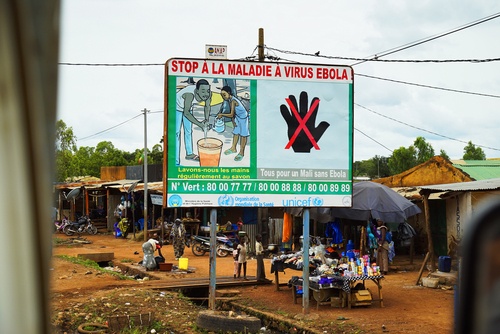Key Takeaways:
– The shutdown of USAID operations raises concerns over the escalating epidemic of the Ebola Sudan virus in Uganda.
– The eight Ebola outbreak in Uganda has officials worrying about global health security, especially since there are no FDA-approved vaccines or treatments for the Sudan virus.
– The temporary standstill of foreign aid funding has led to uncertainty amongst health nonprofits who worry about unresolved debts and frozen U.S. funding.
– Delay in staff deployment and halting of international travel are further factors causing a strain on control and preventive measures.
– Despite the communication lapse and funding disruptions, hope carries on with other countries and organizations stepping in to assuage the situation.
Ebola Sudan Outbreak in Uganda
Healthcare officials in the U.S. have expressed their grave concerns about an escalating Ebola epidemic in Uganda, following the shutdown of some notorious United States Agency for International Development (USAID) missions. They say the sudden freezes in foreign aid have contributed to sluggish and disorganized responses to Uganda’s rapidly growing Ebola outbreak.
Uganda is now grappling with its eighth Ebola outbreak, with the first case identified as a nurse who contracted the deadly Ebola Sudan virus around late January this year. Currently, the tally stands at six confirmed cases and six more suspected. Two of these are unlinked epidemiologically to the other cases, causing dread over the potential for unhandled community transmission.
Americans at Risk
There are several exposed Americans in Uganda, according to health authorities. The people who came in contact with the Sudan strain of Ebola have not exhibited symptoms yet. The Sudan virus, according to World Health Organization (WHO) statistics, is quite lethal, boasting a fatality rate of 41% in previous outbreaks.
Problematic Pause in Aid
The rise in Ebola cases dovetails with the unfolding halt in foreign aid sponsored by the Trump administration. This has triggered uncertainty among health nonprofits as they face mounting debts and a full-scale freeze on most of their U.S. funding. This is a grim picture painted by the former USAID global health director, Dr. Atul Gawande, when stressing the importance of health and disaster relief workers.
The shutdown has resulted in reduced contact tracing as well as screening of departing international travelers in Uganda. Moreover, USAID has planned to put almost all its staff on leave from Friday and has already started closing foreign missions.
Past Interventions and Present Crisis
In the past, the US has played a significant role in managing outbreaks. In 2022, for instance, an outbreak of the Sudan virus in Uganda led to an extensive American response, with the U.S. boosting screening and preparedness measures domestically and providing substantial aid on Ugandan soil.
However, Uganda’s healthcare system is under severe strain and is already handling a separate epidemic – mpox – which has resulted in over 2,000 cases. The Trump administration’s decision to withdraw USAID support and end support of WHO initiatives brings an additional layer of uncertainty and creates obstacles for an effective response on the ground.
New Partnerships and Hope
Despite the U.S’s extrication, some states have stepped in developing informal partnerships, escalating their preparedness for potential cases. Prominent organizations like Médecins Sans Frontières are trying to cover the shortfall, and even countries like Russia have offered aid to Uganda, launching a mobile lab in the capital to aid with the outbreak.
Going forward, the hope is for an international cooperative effort to tackle and control the spread of the Ebola Sudan virus with urgency, preventing an already dire situation from escalating further.
